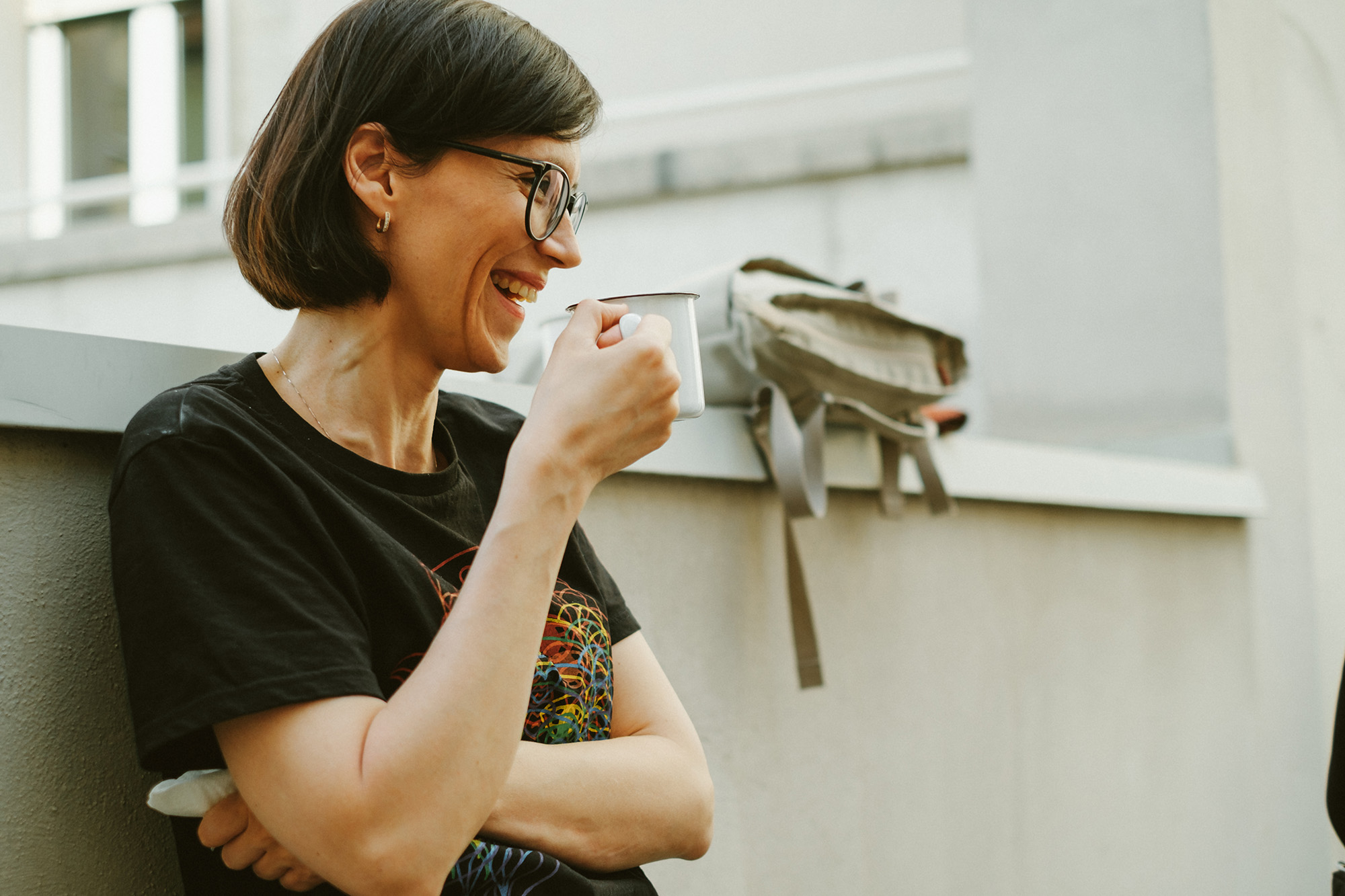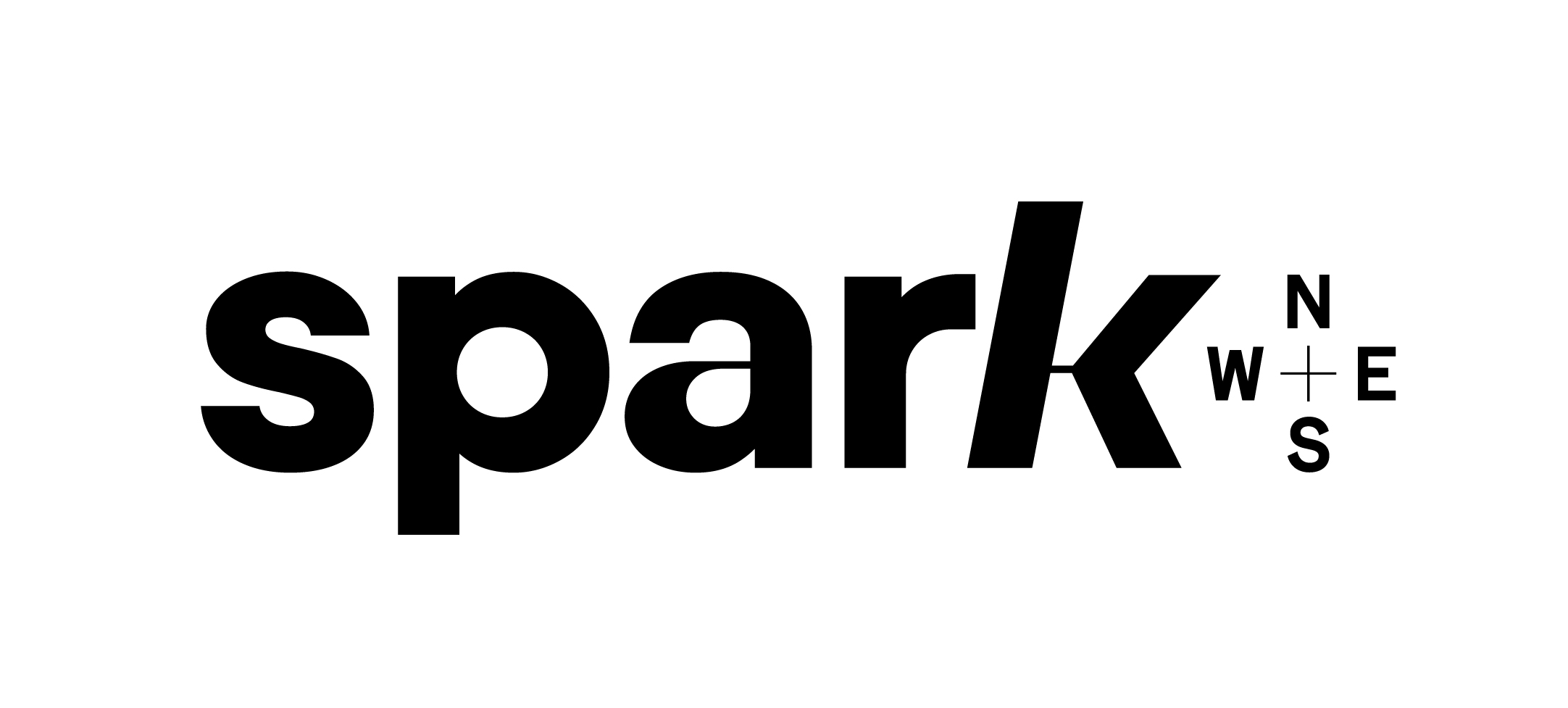The programme that supports story editors, writers and directors in crafting inclusive and environmentally sustainable narratives.
TFL NEXT Screens of tomorrow is an Erasmus+ programme created in collaboration between Sparknews and TorinoFilmLab, funded by the European Union. This workshop places a strong focus on social inclusion, the green and digital transitions, and promoting young people’s participation in democratic life.
SCREENS OF TOMORROW - A PROGRAMME MADE BY SPARKNEWS
To make the world a better place, let’s start by changing the way we talk about it!
Sparknews mission is to allow new narratives to emerge, by highlighting positive initiatives and creating awareness & engagement programs, in order to accelerate ecological and social transition.
Sparknews supports artists and professionals from all cultural backgrounds to raise awareness of social and environmental issues, and empower them to :
- reduce environmental damage of their activity
- develop consciousness of narrative power to help change the world
SCREENS OF TOMORROW is one of Sparknews major initiatives dedicated to artists and Culture professionals.
Co-constructed by and for TV and cinema professionals, the Screens of Tomorrow programme aims for more inclusive and sustainable fictions to be written, produced and distributed.
The programme, being deployed across Europe, consists of a Guide, a digital resource center, as well as conferences, panels, master-classes and workshops for current and future professionals from the cinema industry.
TFL Next - Screens of Tomorrow aims at:
- Supporting writers and directors in crafting inclusive and environmentally sustainable narratives.
- Training a new wave of story editors capable of assisting writers in incorporating these dynamics while respecting their creativity.
- Introducing innovative methods and resources, notably The Screens of Tomorrow guide, to encourage participants to challenge traditional writing practices while maintaining their creative autonomy.
- Guiding participants in integrating social and environmental themes into their individual storyline projects.
Funded by the European Union. Views and opinions expressed are however those of the author(s) only and do not necessarily reflect those of the European Union or the European Education and Culture Executive Agency (EACEA). Neither the European Union nor EACEA can be held responsible for them.
The online workshop will be structured into 2 different ONLINE modules:
MODULE 1 – Hosted by Sparknews | Raising consciousness on social and environmental issues and opening new creative perspectives.
This module will focus on addressing contemporary challenges such as climate change, planetary boundaries, and systems thinking. Specific topics include biodiversity, material consumption, gender inequalities, and digital sobriety.
The format will involve interactive sessions enriched by contributions from professionals and experts, fostering discussions.
The workshop aims to encourage collaborative exploration of social and environmental issues, providing insights into how these issues are perceived within European civil society and its narratives.
Furthermore, it seeks to imagine more inclusive and sustainable fiction while preserving creativity. This will be achieved by integrating innovative tools and creating moments of connection and creativity among participants.
It is open to a maximum of 5 story editors, as well as to the members of the 20 selected projects. The module will comprise both masterclasses and workshops, providing practical tools for integrating these topics into story development.
The module will span a total of 20 hours and will be conducted entirely online from 3rd to 14th June 2024.
MODULE 2 – Hosted by TorinoFilmLab | applying themes skills acquired in the first module to real feature film projects development.
The primary objective of this programme is to offer participants a comprehensive understanding of the feature film development process, with a specific emphasis on applying the principles of sustainability and inclusion to their projects, leveraging the knowledge acquired in the first module. The intent is to develop these projects with a clear commitment to sustainability, ensuring that environmental and social considerations are integrated seamlessly into the creative and developmental aspects of filmmaking.
20 feature film projects at an early development stage presented by international scriptwriters or writers/directors together with a producer (if on board) will be selected and divided into 5 groups. Each of them is guided by a tutor with a wide international experience as a script consultant.
On top of this, the 5 story editors will benefit on a hands-on training and join a specific group, which involves 4 projects, with the main tutor who acts as well as a mentor to the story editor trainee.
The workshop is synopsis-based, which means that participants exclusively work on the synopsis of their feature film projects.
The second module is divided into 2 development sessions:
- a first 5 day-long session, where participants discuss their work in group sessions and one- on-one meetings with their tutors;
- then, participants have 2 months to rework their materials;
- a second 3 day-long session, where participants share and discuss their work again in individual meetings with their mentors and group sessions with other participants.
The programme has been designed for two different targets:
20 European scriptwriters, with a feature film project at early development stage:
The online workshops are open to scriptwriters, directors and producers from Europe. The project can be presented individually or in a team (maximum 2 participants per team) and must be in the shape of a feature film project at an early development stage.
5 European script editors, narrative experts:
European professional Story Editors interested in being trained for feature film projects.
The aim of the workshop is to foster the development of sustainable and inclusive fictional narratives, and applicants are encouraged to demonstrate a commitment to these principles in their project proposals. Participants are expected to approach the full programme with a mindset geared towards crafting sustainable and inclusive fictional narratives, ensuring that their work aligns with these values throughout the development process.
The working language of all workshops, meetings and events is English; thus, a good knowledge of English is essential to participate.
750 Euro (+ VAT, if due) per each Story Editor;
1,700 Euro (+ VAT, if due) per team with project (1 or 2 participants)
Upon selection, participants must send a proof of the payment within the following 2 days, to confirm their seat.
TorinoFilmLab doesn’t foresee any scholarships for this workshop. In many countries, public institutions provide scholarships for this kind of training, and TorinoFilmLab can provide a selection letter to facilitate the request.
First module (powered by Sparknews): from 3rd to 14th June (20 hours in total)
First part of 2nd module (powered by TFL): from 17th to 21st June
Second part of 2nd module (powered by TFL): in the week of 26th August
STORY EDITORS:
The requested materials – to be submitted all together in one PDF, and all in English – are:
- a motivational letter explaining why you would like to attend a workshop with this particular focus (3 pages maximum, In font Times New Roman - 12);
- a document in which you describe if/ how you already work as script consultants (3 pages maximum, In font Times New Roman - 12);
- a CV (3 pages maximum, In font Times New Roman - 12);
- a YOUTUBE link (with NO password) to 1’ video presentation – in ENGLISH - where the applicant presents her/himself, explaining the main reason why she/he decided to apply to this programme.
FEATURE FILM PROJECTS:
The requested materials – to be submitted all together in one PDF, and all in English – are:
- project logline (2 lines max, In font Times New Roman - 12) - please note that this logline will be used for communication purpose and to announce the eventual selection of the project in the program;
- project synopsis (3 pages max, 3 pages double spaced. In font Times New Roman - 12);
- director's/scriptwriter's intention note (1 page max, In font Times New Roman - 12);
- 3 pages max with: the CV of all project team members, a link (with NO password) to previous work (30’ max)
- a link (with NO password) to 1’ video presentation (it must include all the project team members; in this video you are asked to present yourself/yourselves and explain why you’re interested in applying to TFL Next Screen of Tomorrow);
- materials about the audio-visual approach: still pictures, video mood board, etc. (1 page max, In font Times New Roman - 12).
DEADLINE FOR APPLICATIONS
2nd May 2024
Click on "APPLY NOW!" to access the application form and submit your candidature (before starting the application process, you need to create an account on the TFL platform).
In the application form, candidates will also be asked to fill out a questionnaire about the status of their project.
Applications that don’t respect the above-listed criteria will be rejected!
For more information please contact: fiore@museocinema.it
What does European project mean?
It means that at least 1 of the 2 project team members must be based in Europe. Please note that the workshop sessions will be scheduled according to the CET timezone.
Does the theme of my project need to be related to sustainability topics?
No, the story doesn’t need to be related to climate change or any other sustainability topics specifically. We are selecting projects presented by applicants/film makers who have a strong interest in these topics and in working to set that kind of world and approach. The workshop will be more focused on the person motivation than on the content.
Is it more advisable to apply with a producer?
The workshop can be beneficial also for a Producer, especially if the person is interested in Creative Production aspects. But it is not mandatory, not event for selection purposes.
If we participate as a team of two people, should we both always attend the sessions?
It is not mandatory, but it is strongly recommended because the workshop will be mainly focused on open group discussions, talks, inspirational lectures. Having both team members attend all the sessions would be more beneficial to develop the project further.
Can I apply if I already took part or apply to other TFL and Screens of Tomorrow programmes?
Yes, you can, of course, and we strongly encourage you to do it!
All the updates once a month in your mailbox, subscribe to the TFL newsletter.



